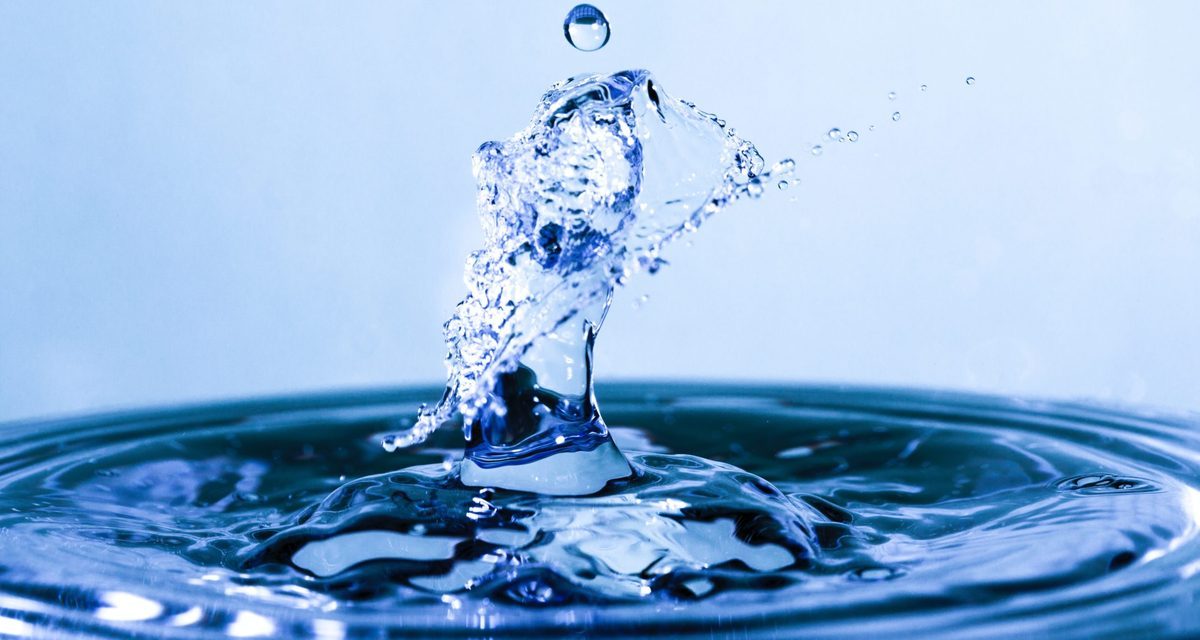Benefits of Drinking Water for Skin, Digestion, Weight & More
Jillian Levy, CHHC
Drinking water is essential for the body and is important to help maintain normal function of immune and cardiovascular systems, balance electrolytes, support digestion, and efficiently disperse nutrients throughout the body. The benefits of drinking water includes that it prevents dehydration, supports digestion and detoxification, keeps calorie intake in check, improves the appearance of the skin, hair, and eyes, and helps control hunger and support weight loss. Other benefits of water are improved circulation, concentration, appetite control, and energy. According to Harvard Medical School and the Institute of Medicine, it is recommend that the average generally healthy person or adult should drink anywhere from six to 13 cups of water per day.
7 Science-Based Health Benefits of Drinking Enough Water
Joe Leech, MS and Jillian Kubala, MS, RD
Staying hydrated is very important for overall health and survival, and there are many benefits of water. The body’s physical performance can suffer if it is not hydrated; this can lead to reduced motivation, altered body temperature control, and increased fatigue. Hydration significantly affects energy levels and brain function. It it reported that even mild hydration can decrease brain response. Water can boost the metabolic rate, enabling the body to lose weight. One of the most common symptoms of water, research shows, is headaches and constipation, so staying hydrated may help prevent and treat headaches and help to relieve some constipation. A higher intake of water increases the amount of urine the body is passing which can help pass and break down kidney stones more easily. Also, water can help prevent hangovers because alcohol makes the body lose more water than the body takes in, which can lead to dehydration.
Does dietary fluid intake affect skin hydration in healthy humans? A systematic literature review
M Akdeniz , T Tomova-Simitchieva, G Dobos , U Blume-Peytavi, and J Kottner
There is currently a lack of evidence of the skincare benefits from drinking increased amounts of water; however, to research the associations between daily water intake and skin hydration have gained more attention. Many studies were investigated to determine the affects of fluid intake on the skin for healthy adults, and signs of dryness and roughness were observed in the studies. The results concluded that the elasticity and extensibility of skin increased slightly and dietary water intake can increase startup corneum hydration. The links between daily water intake and sebum content, transepidermal water loss, and skin surface pH were undetermined. More research is required on wether increased fluid intake can improve skin dryness.
Effect of electrolyzed high-pH alkaline water on blood viscosity in healthy adults
Joseph Weidman, Ralph E. Holsworth, Jr., Bradley Brossman, Daniel J. Cho, John St.Cyr, and Gregory Fridman
A clinical trail assessed individuals after exercise-induced dehydration to determine the effect of high-Ph water on four different biomarkers. To better understand rehydration after strenuous exercise, more parameters are needed. The experiment included one hundred healthy adults which required all persons to exercise in a warm environment until their weight decreased by a normally accepted level. The individuals were randomized to rehydrate with high-Ph electrolyzed water or standard water and were assessed for an extra two hour recovery period to determine any potential variations within the measured parameters. The results showed that drinking high-pH alkaline water reduced systolic blood viscosity notably more than normal, standard water after exercise-induced dehydration.
Negative, Null and Beneficial Effects of Drinking Water on Energy Intake, Energy Expenditure, Fat Oxidation and Weight Change in Randomized Trials: A Qualitative Review
Jodi J. D. Stookey
Determined in randomized controlled trials, there are varied effects drinking water has on energy intake, fat oxidation, energy expenditure, and weight change in adults and/or children. The results concluded that drinking water: increases energy expenditure in metabolically inflexible, obese people; decreases energy intake when food intake is ad libitum or whenever desired; and increases fat oxidation when blood carbohydrate or insulin concentrations are not elevated. Further research is needed to optimize drinking water initiatives.
The effect of hydration state and energy balance on innate immunity of a desert reptile
Karla T Moeller, Michael W Butler, and Dale F DeNardo
Water is a critical resource with great implications for organismal ecology, but the effect of osmotic state on immune function has not received enough attention. This study of the Gila monster, Heloderma suspectum, assessed the independents effects of osomotic state, digestive state, and energy balance on innate immune function. Researchers observed that Gila monsters have a more vigorous innate immune function during periods of dehydration. They found in both lab and field studies that dehydration increased recovery and agglutination or the clumping of cells abilities. The osmotic state may have a greater affect on immune function as compared to energy availability. However, there is a need for further research into the effects of hydric state on immune function.
The influence of drinking-water pollution with heavy metal on the expression of IL-4 and IFN-γ in mice by real-time polymerase chain reaction
Rayhaneh Radbin, Fatemeh Vahedi, and JamshidKhan Chamani
One of the most significant water pollutants are heavy elements and their negative adverse affects have been determined. Researchers aimed to examine the effects of two heavy elements, lead and copper, on expression of interleukin-4 and interferon-gamma as cellular and humoral immunity biomarkers. In this study, mice were tested and given drinking water which contained either lead or copper salts for a two week period. The results showed that the weight of the mice tested with copper-ionized water, however considered not drastic, increased. Also, there was no difference reported in the food uptake and volume of water found in the different mice groups. This study demonstrates that drinking-water with heavy metal pollutants results in the
inconsistency of natural cytokines balances, therefore resulting in a negative effect on immune system.
Water supplementation after dehydration improves judgment and decision-making performance j
Olivia C. Patsalos and Volker Thoma
It has been reported that dietary water supplementation and dehydration affect both cognitive performance and mood in children and adults on many different tasks including attention, memory access, executive function, and speeded responses. In one study, a number of adult participants were offered a certain amount of water before testing, following fasting from the previous night on two different occasions. The results concluded that water supplementation improved performance on many tasks linked with decision-making and cognitive reflection in judgment.
Water, Hydration and Health
Barry M. Popkin, Kristen E. D’Anci, and Irwin H. Rosenberg
Water is the most important and critical nutrient enabling the body to thrive. Because of large proportions of fluids coming from caloric beverages, as a result, water has never been more important for the prevention of nutrition-related noncommunicable diseases. In terms of physical performance, water can reverse fatigue, increase motivation, boost endurance, improve thermoregulatory capability, increase perceived effort, and also reduce oxidative stressed induced by exercise and dehydration. Dehydration can alter cognitive performance and can impair performance on tasks such as arithmetic ability, short-term memory, perceptual discrimination, psychomotor skills, and visuomotor tracking; however, rehydration may be able to combat such deficits. Kidney function is vital in the regulation of water balance and blood pressure, but water excretion via the kidney removes solutes from the blood. Good hydration is also linked with the decrease in urinary track infections, hypertension, fatal coronary heart disease, and many more. More evidence is needed to determine the association between good hydration with reductions in constipation, exercise induced asthma, hypertonic dehydration in infants, and hyperglycemia in diabetics.
Why Is Water Important? 16 Reasons to Drink Up Natalie Butler, R.D., L.D. and Natalie Silve
Water takes up most of the body weight and has many important functions. These functions include it help create saliva, regulate body temperature, maximize physical performance, prevent constipation, aid in digestion, better absorb nutrients, help weight loss, improve blood oxygen circulation, combat illness, boost energy, aid in cognitive function, improve mood, and help keep skin glowing. It also protects the spinal cord, tissues, and joints, help excrete waste through perspiration, urination, and defecation, and overall, prevent dehydration. Research recommends that men should drink 15.5 cups of waters and women should drink 11.5 cups daily for optimal health.
Drinking water pollutants may affect the immune system: concerns regarding COVID-19 health effects
Natalia Quinete and Rachel Ann Hauser-Davis
The COVID-19 pandemic impacts the planet in a significant way. Due to the uncreased use of plastic waste and disinfectants, there is much concern for the impact it has environmental and human health; especially through drinking water. There are some major pollutants in water that are reported to be immune-toxic and could likely compromise the immune response of humans, specifically in regards to people exposed to COVID-19. Researchers found that the contaminants in some drinking water including metals, PFAS, ad plasticizers may exasperate COVID-19 respiratory symptoms. In addition, other studies demonstrated that these containments can increase pathogen immune response and resistance to antibiotics. Further research into the study is needed to focus on the long-term exposure these contaminants have on the human body.

